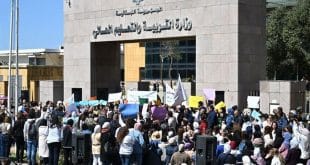الهيئات الناظمة: كابوس سياسيّ للسياسيين… ولا مساعدات دولية بدونها
في بيانها الوزاري، وعدت حكومة نواف سلام بـ “تشكيل الهيئات الناظمة أو تفعيلها في قطاعات الكهرباء، الاتصالات، الطيران المدني، وزراعة القنب وغيرها”، معتبرة أن ذلك من الأولويات الإصلاحية الضرورية، خاصة في قطاعي الكهرباء والاتصالات. ورغم أن هذه الوعود ليست جديدة، إلا أن هذا الأمر أتى في توقيت حساس يتسم بتغيرات سياسية داخلية عميقة، ويُنظر إليه على أنه خطوة هامة لتحرير الحكومة من القوى السياسية المعطّلة.
هل ستتحقق الوعود بتشكيل الهيئات الناظمة كما يتمنى الوزراء؟ أم أن هذه الهيئات ستظل حبيسة الأدراج؟
تلعب الهيئات الناظمة دورًا مهمًا في تنظيم بعض القطاعات الحيوية مثل الكهرباء والاتصالات والطيران المدني. ولكن ما هو الدور الذي تلعبه هذه الهيئات؟ ولماذا تبقى غائبة عن الساحة رغم وجود قوانين تنص على تشكيلها؟ في هذا المقال، سنتعرف على جوانب هذه الهيئات الناظمة في لبنان، الصعوبات التي تواجهها، والتحديات السياسية التي تحول دون تنفيذها.
الهيئات الناظمة: نموذج عالمي واستثناءات محدودة
هناك بعض الدول التي لا تعتمد على هيئات ناظمة مستقلة في قطاعاتها المختلفة. على سبيل المثال، في كوريا الشمالية وإريتريا، تتحكم الحكومة بشكل كامل في شؤون الوزارات دون أي هيئة ناظمة مستقلة. كما أن الصومال، بعد فترة طويلة من الصراع الداخلي، أنشأت الهيئة الوطنية للاتصالات، ولكنها كانت غائبة عن الكثير من الدول الإفريقية والعربية بسبب الحروب أو صغر حجم السوق.
هل غاب لبنان عن قائمة الدول التي ليس لديها هيئات ناظمة؟
هيئات ناظمة في لبنان: قفزات غير مكتملة
لبنان الذي يتعرض لضغوط دولية مستمرة لإنشاء هيئات ناظمة في قطاعات حيوية مثل الكهرباء والاتصالات، يواجه مشكلات سياسية تحول دون تحقيق هذه الوعود. ففي عام 2002، أقر مجلس النواب قوانين لتنظيم قطاعات الكهرباء، الطيران المدني، والاتصالات، لكن تطبيق هذه القوانين لم يتمّ بالكامل. في الوقت الذي كانت الضغوط الدولية تتزايد لتفعيل هذه الهيئات، كان الوزراء يكتفون بالإشارة إلى أهمية الهيئات في خطاباتهم دون أن يتحقق شيء على أرض الواقع.
تجربة الكهرباء والاتصالات: بين الأمل والإحباط
قطاع الكهرباء: رغم القانون رقم 462 الصادر عام 2002 والذي ينص على ضرورة إنشاء هيئة ناظمة لقطاع الكهرباء، فإن تنفيذ هذا القانون ما زال بعيد المنال. فقد تمّ الموافقة على تشكيل الهيئة في عام 2022 ولكن لم يتم تعيين أعضائها بسبب الخلافات السياسية التي تهيمن على الساحة اللبنانية.
قطاع الاتصالات: القطاع الوحيد الذي شهد تقدّمًا نسبيًا في هذا المجال هو قطاع الاتصالات، حيث تمّ تشكيل الهيئة الناظمة للاتصالات في عام 2007. لكن الهيئة لم تتمكن من القيام بمهامها بشكل فعّال بسبب عدم تعيين مجلس إدارة جديد بعد انتهاء ولاية المجلس الأول في عام 2012، ما أدى إلى تعطيل دور الهيئة.
الهيئات الناظمة: كيف تعمل؟
الهيئات الناظمة هي كيانات مستقلة تعيّنها الحكومة لضمان الشفافية والكفاءة في إدارة القطاعات الحيوية مثل الكهرباء، الطيران المدني، والاتصالات. وتكمن مهامها في تطوير القوانين، مراقبة السوق، وتشجيع الاستثمارات، وتنظيم التراخيص، وضمان العدالة بين جميع الأطراف المعنية.
لكن في لبنان، يبدو أن البيروقراطية والتجاذبات السياسية قد أبقيا هذه الهيئات في حالة انتظار. فما هو السبب وراء ذلك؟
الأسباب السياسية لغياب الهيئات الناظمة في لبنان
غياب الإرادة السياسية: الحكومة لا تمتلك الإرادة السياسية لتطبيق القوانين المتعلقة بتشكيل الهيئات الناظمة، وذلك نتيجة لصراع المصالح السياسية بين الأطراف المختلفة في الحكومة.
التجاذبات السياسية: الهيئات الناظمة تتطلب توافقًا بين الأطراف السياسية الكبرى في لبنان، وهو ما يشكل عقبة أساسية أمام تشكيل هذه الهيئات.
فشل الضغوط الدولية: رغم الضغوط الدولية المتكررة، لم تنجح الحكومات اللبنانية في تنفيذ القوانين اللازمة لتشكيل الهيئات الناظمة.
الهيئات الناظمة: ضرورة أم رفاهية؟
على الرغم من أن بعض الحكومات اللبنانية أبدت التزامًا بتشكيل هذه الهيئات استجابةً لمتطلبات المجتمع الدولي، إلا أن العديد من المراتب السياسية في البلاد تتجنب تنفيذ هذا التغيير، مما يعيق الإصلاحات ويؤثر على التقدم في البلاد. لقد أظهرت التجربة اللبنانية أن المشكلة ليست في القوانين وإنما في آلية تطبيقها، وفي الهيكل السياسي الذي يقف عائقًا أمام تنفيذ الإصلاحات.
مستقبل الهيئات الناظمة في لبنان
يبقى المستقبل غامضًا بالنسبة لتفعيل هذه الهيئات. فإذا كانت الحكومة الجديدة جادة في تنفيذ الإصلاحات، يجب عليها أن تبدأ بتشكيل الهيئات الناظمة بشكل جاد بعيدًا عن المحاصصة والفساد.
Regulatory Bodies: A Political Nightmare for Politicians… No International Aid Without Them
In its ministerial statement, the government of Najib Mikati promised to “establish or activate regulatory bodies in the electricity, telecommunications, civil aviation, cannabis cultivation sectors, and others,” considering them necessary reforms, particularly in the electricity and telecommunications sectors. While this promise is not new, it comes at a sensitive time marked by profound political changes, seen as a step towards freeing the government from obstructing political forces.
Will the regulatory bodies see the light as ministers hope, or will they remain in waiting rooms?
Regulatory bodies play an essential role in overseeing critical sectors like electricity, telecommunications, and civil aviation. However, what role do these bodies play, and why have they remained absent despite laws requiring their creation? In this article, we explore the regulatory bodies in Lebanon, the obstacles they face, and the political challenges preventing their implementation.
Regulatory Bodies: A Global Model with Limited Exceptions
Some countries do not rely on independent regulatory bodies for various sectors. For example, in North Korea and Eritrea, the government has full control over ministerial affairs without independent regulators. Similarly, Somalia, after a long period of civil conflict, established its National Communications Authority, but many African and Arab countries have been exempt due to wars or small market sizes.
Has Lebanon been omitted from the list of countries without regulatory bodies?
Regulatory Bodies in Lebanon: Incomplete Progress
Lebanon, under intense international pressure to create regulatory bodies in vital sectors such as electricity and telecommunications, faces political challenges that prevent the realization of these promises. In 2002, the Lebanese Parliament passed laws to regulate the electricity, civil aviation, and telecommunications sectors, but the full implementation of these laws has not occurred. While international pressure has been growing to activate these bodies, ministers have only paid lip service to their importance without any real action.
The Experience of Electricity and Telecommunications: Hope vs. Frustration
Electricity Sector: Despite Law No. 462 passed in 2002, which mandates the creation of a regulatory body for electricity, the full implementation of this law remains distant. Approval for the establishment of the regulatory body was given in 2022, but no members were appointed due to political deadlock.
Telecommunications Sector: The telecommunications sector has made relatively more progress, with a regulatory body established in 2007. However, this body has not been able to function effectively due to the lack of a new board after the first board's term ended in 2012, resulting in the paralysis of the body.
How Do Regulatory Bodies Work?
Regulatory bodies are independent entities appointed by the government to ensure transparency and efficiency in managing key sectors such as electricity, telecommunications, and civil aviation. Their responsibilities include developing laws, monitoring markets, encouraging investments, organizing licenses, and ensuring fairness among all stakeholders.
However, in Lebanon, bureaucracy and political rivalries have kept these bodies in a state of suspended animation. What are the reasons behind this?
Political Obstacles to Regulatory Bodies in Lebanon
Lack of Political Will: The government lacks the political will to implement laws related to the creation of regulatory bodies due to political infighting among various factions.
Political Rivalries: Regulatory bodies require consensus among Lebanon’s major political parties, which presents a significant obstacle to their creation.
Failure of International Pressure: Despite repeated international pressure, Lebanese governments have failed to implement the necessary laws for creating these bodies.
Regulatory Bodies: A Necessity or a Luxury?
Although some Lebanese governments have shown commitment to creating these bodies in response to international demands, many political factions in the country avoid implementing these reforms, which hinders progress. The Lebanese experience reveals that the issue is not
the absence of laws but the challenge of enforcement, compounded by the political structure that blocks reforms.
The Future of Regulatory Bodies in Lebanon
The future of these bodies remains uncertain. If the new government is serious about implementing reforms, it must begin to establish regulatory bodies in earnest, free from political patronage and corruption.
Translated by international scopes team
المصدر: باتريسيا الجلاد – نداء الوطن
 سكوبات عالمية إقتصادية – EconomyScopes إجعل موقعنا خيارك ومصدرك الأنسب للأخبار الإقتصادية المحلية والعربية والعالمية على أنواعها بالإضافة الى نشر مجموعة لا بأس بها من فرص العمل في لبنان والشرق الأوسط والعالم
سكوبات عالمية إقتصادية – EconomyScopes إجعل موقعنا خيارك ومصدرك الأنسب للأخبار الإقتصادية المحلية والعربية والعالمية على أنواعها بالإضافة الى نشر مجموعة لا بأس بها من فرص العمل في لبنان والشرق الأوسط والعالم




